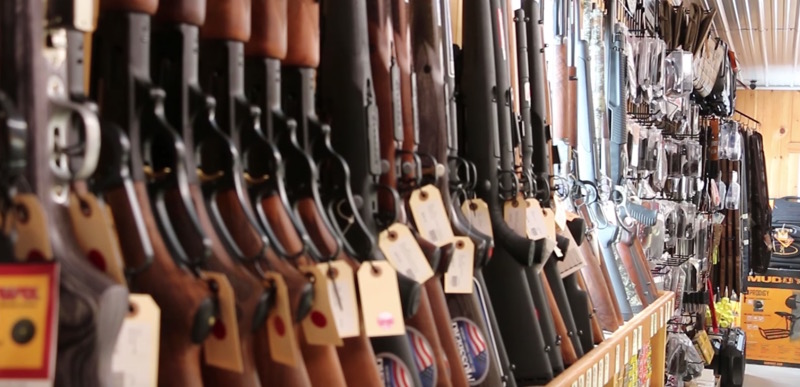Hot Air has an interesting article today on Florida’s ‘red flag’ law they passed in 2018 after the Parkland high school shooting. Since the law has been passed, thousands of guns have been seized from citizens in Florida in a very inconsistent way.
First, this from the AP:
The law, supported by legislators of both parties , has been applied more than 3,500 times since, with the pace accelerating during the last half of 2019. Even so, an Associated Press analysis of the law showed its use is inconsistent, with some counties and cities using it rarely and others not at all.
Advocates of Florida’s red flag measure say before it existed, it was often difficult to remove firearms from those making threats or suffering severe mental breakdowns. Investigators did not act on reports that the Parkland shooter was threatening to carry out a school massacre. But even if they had, it is likely he would have been allowed to keep his guns because he had no felony convictions or involuntary, long-term mental commitments, they say.
Being applied more than 3,500 times means thousands of citizens have had to give up their guns. Now some of these instances are surely legitimate, which the AP focuses on:
A 23-year-old man who posted on Facebook, “I don’t know why I don’t go on a killing spree.” A West Palm Beach couple who shot up their home while high on cocaine. A 31-year-old Gulf Coast man who pointed a semiautomatic rifle at a motorcyclist.
All four Florida residents had their guns taken away by judges under a “red flag” law the state passed three weeks after authorities say a mentally disturbed man killed 17 people in a shooting at Marjory Stoneman Douglas High School in Parkland two years ago Friday.
Hot Air’s Jazz Shaw writes that he’s not going to argue with cases such as these and I agree. But he seriously doubts that all of the cases are this serious:
But what about the more marginal cases? As the report reveals, there are two counties in the panhandle where authorities have only issued one red flag order for every 100,000 residents. Nine other, mostly rural counties, have issued none at all since the law took effect. But at the other end of the scale, multiple counties have issued one for every 5,500 residents. One other (Highlands County) issued one for every 850 people living there. That’s got to be a significant portion of the guns in the county.
Are we honestly supposed to believe that some of those counties are chock full of crazy people while others have no issues at all? Or could it be that some counties have judges and/or sheriffs that are far more likely to approve gun confiscations than others? The sheriff in the top gun-grabbing county, Paul Blackman, told the AP that he has “no idea” why his county is number one but noted that his deputies receive frequent calls about mental health crisis situations.
As he goes on to point out, it would see that law is being abused in some counties and there are few safeguards to prevent this from happening.
For example, Shaw points out that the hearing used to take away someone’s guns aren’t criminal proceedings and therefore the target of the law is not entitled to representation:
Here’s one other hole in the state’s red flag law that has many people concerned. These red flag hearings are not considered criminal proceedings so you aren’t entitled to a lawyer assigned by the court. If you’re too poor to afford a good attorney, your chances of prevailing at the hearing go way down. With all that in mind, how many of these “success” stories about gun confiscations were actually brought by people with an ax to grind against their neighbor or angry ex-wives and girlfriends? Once the judge makes the decision to confiscate your weapons, that’s pretty much it. You’re allowed to appeal, but again, if you don’t have a good lawyer what chance do you have?
This is exactly the kind of thing conservatives worry about and why so many gave Dan Crenshaw hell when he suggested this could be done in a way that protects law abiding citizens. Even with the best of intentions laws like this can be abused, especially when they aren’t crafted with special care as it seems was the case with the Florida law. It is indeed a scary road to go down.

